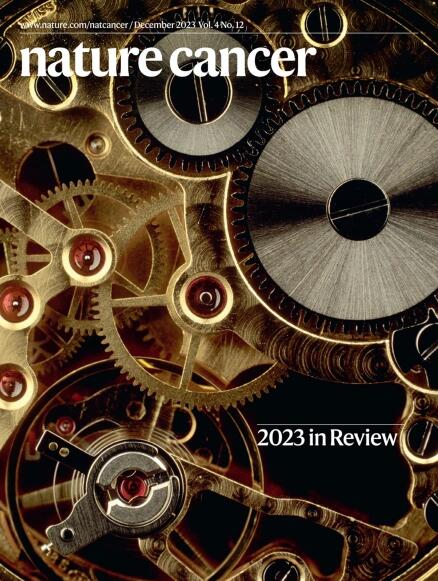利莫gene laherparepvec新辅助治疗皮肤基底细胞癌的疗效和耐受性:一项II期试验(NeoBCC试验)。
IF 23.5
1区 医学
Q1 ONCOLOGY
引用次数: 0
摘要
我们在18例难以切除的皮肤基底细胞癌患者中进行了一项单臂、II期、溶瘤病毒(T-VEC)新辅助试验。主要终点,定义为在6个周期(13周)的T-VEC治疗后无需整形重建手术即可切除的患者比例,在I期后已经达到(18例患者中有9例;50.0%);因此,这项研究因早期成功而中止。客观有效率为55.6%,病理完全有效率为33.3%。次要终点包括安全性、无复发生存期和总生存期、发生新基底细胞癌的时间和生物学读数。仅发生轻微不良事件。6个月无复发生存率和总生存率均为100%。两例患者被诊断为新的基底细胞癌。T- vec导致肿瘤微环境中细胞毒性T细胞(P = 0.0092)、B细胞(P = 0.0004)和髓系细胞(P = 0.0042)显著增加,调节性T细胞(P = 0.0290)显著减少。总之,新辅助T-VEC为难以切除的基底细胞癌患者提供了一种可行的治疗选择。2018-002165-19)。本文章由计算机程序翻译,如有差异,请以英文原文为准。

Efficacy and tolerability of neoadjuvant therapy with Talimogene laherparepvec in cutaneous basal cell carcinoma: a phase II trial (NeoBCC trial)
We present a single-arm, phase II, neoadjuvant trial with the oncolytic virus talimogene laherparepvec (T-VEC) in 18 patients with difficult-to-resect cutaneous basal cell carcinomas. The primary end point, defined as the proportion of patients, who after six cycles of T-VEC (13 weeks), become resectable without the need for plastic reconstructive surgery, was already achieved after stage I (9 of 18 patients; 50.0%); thus the study was discontinued for early success. The objective response rate was 55.6% and the complete pathological response rate was 33.3%. Secondary end points included safety, relapse-free survival and overall survival, time to occurrence of new basal cell carcinomas and biological read outs. Only mild adverse events occurred. The 6-month relapse-free survival and overall survival rates were 100%. In two patients a new basal cell carcinoma was diagnosed. T-VEC led to a significant increase in cytotoxic T cells (P = 0.0092), B cells (P = 0.0004) and myeloid cells (P = 0.0042) and a decrease in regulatory T cells (P = 0.0290) within the tumor microenvironment. Together, neoadjuvant T-VEC represents a viable treatment option for patients with difficult-to-resect basal cell carcinomas (EudraCT no. 2018-002165-19). Ressler et al. perform a phase II clinical trial of neoadjuvant talimogene laherparepvec in cutaneous basal cell carcinoma and report on treatment safety, efficacy and on treatment-induced immune tumor microenvironment changes.
求助全文
通过发布文献求助,成功后即可免费获取论文全文。
去求助
来源期刊

Nature cancer
Medicine-Oncology
CiteScore
31.10
自引率
1.80%
发文量
129
期刊介绍:
Cancer is a devastating disease responsible for millions of deaths worldwide. However, many of these deaths could be prevented with improved prevention and treatment strategies. To achieve this, it is crucial to focus on accurate diagnosis, effective treatment methods, and understanding the socioeconomic factors that influence cancer rates.
Nature Cancer aims to serve as a unique platform for sharing the latest advancements in cancer research across various scientific fields, encompassing life sciences, physical sciences, applied sciences, and social sciences. The journal is particularly interested in fundamental research that enhances our understanding of tumor development and progression, as well as research that translates this knowledge into clinical applications through innovative diagnostic and therapeutic approaches. Additionally, Nature Cancer welcomes clinical studies that inform cancer diagnosis, treatment, and prevention, along with contributions exploring the societal impact of cancer on a global scale.
In addition to publishing original research, Nature Cancer will feature Comments, Reviews, News & Views, Features, and Correspondence that hold significant value for the diverse field of cancer research.
 求助内容:
求助内容: 应助结果提醒方式:
应助结果提醒方式:


